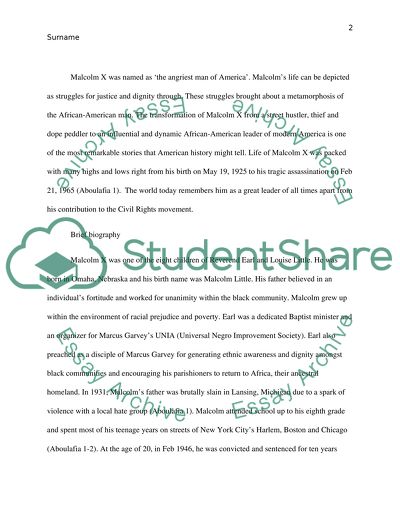Cite this document
(“Malcolm X from the Civil Rights Time Term Paper”, n.d.)
Retrieved from https://studentshare.org/history/1430109-write-about-malcom-x-from-the-civil-rights-time
Retrieved from https://studentshare.org/history/1430109-write-about-malcom-x-from-the-civil-rights-time
(Malcolm X from the Civil Rights Time Term Paper)
https://studentshare.org/history/1430109-write-about-malcom-x-from-the-civil-rights-time.
https://studentshare.org/history/1430109-write-about-malcom-x-from-the-civil-rights-time.
“Malcolm X from the Civil Rights Time Term Paper”, n.d. https://studentshare.org/history/1430109-write-about-malcom-x-from-the-civil-rights-time.


